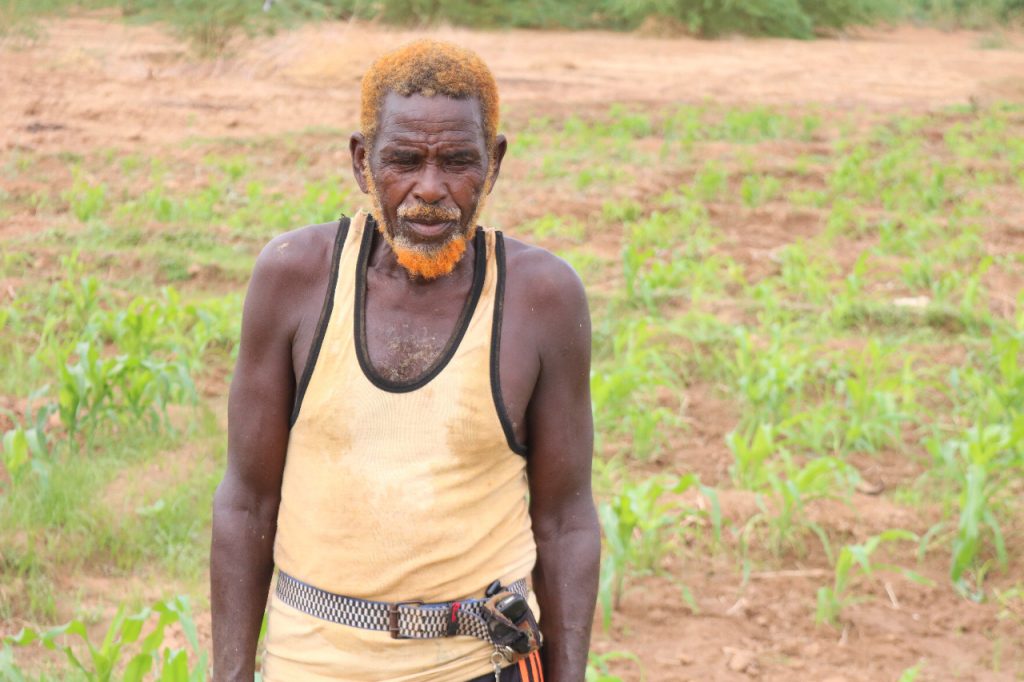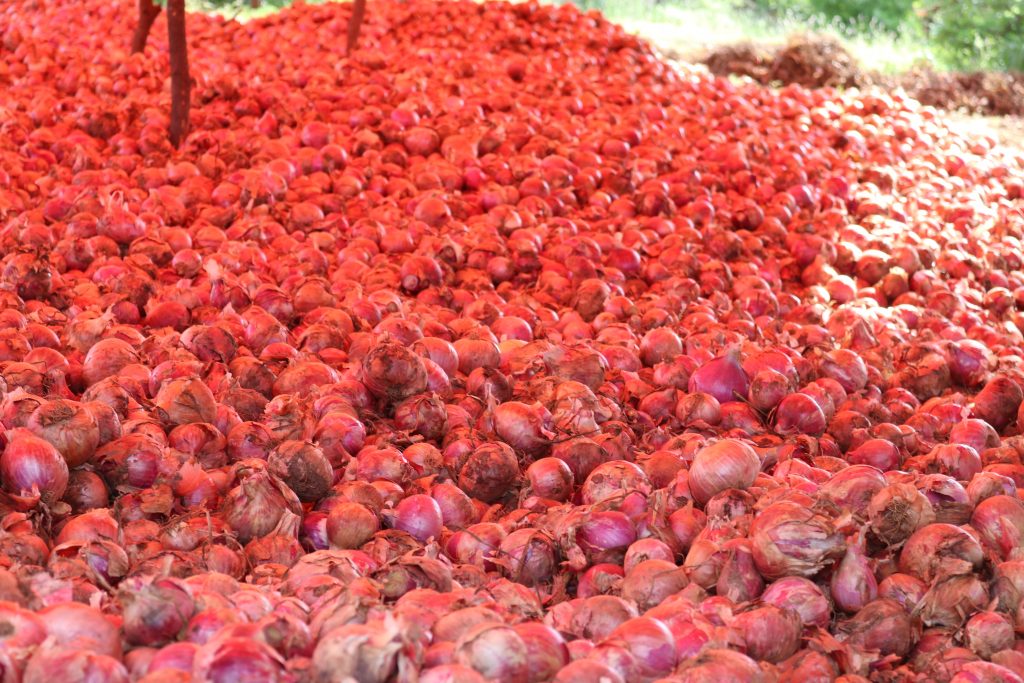
Billow Adow, a small-scale farmer from Hamare practices farming on a quarter an acre piece of land. This has enabled him to not only cater for his children’s education but also take care of his nuclear family. However, due to the unpredictability of the Gu’rains that farmers are heavily reliant on, returns from his piece of land have not been forthcoming. The dwindling profits from his farming and the inability to now take care of his family and his children’s education have Billow reliant on cash transfers from well-wishers and humanitarian organizations.
“Farming was no longer a reliable source of income, and I was struggling to pay school fees and feed my family.”
Billow adow
“I have been a farmer all my life, like my father before me. But much has changed since I was as a child. The rains that once were regular have become unpredictable, and severe droughts are becoming more frequent. Farming was no longer a reliable source of income, and I was struggling to pay school fees and feed my family. I used to plant maize once a year. If there was rain, the harvest was good. If there wasn’t, the harvest was poor. But with the changes in climate, I could hardly grow enough maize to meet my family’s needs.” Recalls Billow
In order to help farmers in Hamare increase their resilience to climate change and improve their income, NAPAD in partnership with Terre des homes (TDH) started a solar irrigation project that targeted 300 farmers. These direct and indirect target groups were among the hardest hit by the previous severe drought that ravaged most parts of the country. The project also involved construction of shallow wells close to the river and elevated water tanks that can hold a maximum of 60000 liters. Water is pumped from the wells to the elevated tanks using solar energy via PVC pipes then to the farms. These has enabled areas further from the river to also benefit from the project.

“This is a very extraordinary yield, something that I have never experienced before. With the money, I am now able to provide for my family’s’ basic need“
billow adow
Mr. Billow has since diversified his farming, he now practices mixed farming. Last season, Billow harvested 50 bags of onions which he sold for Birr 600 per bag translating to a total of 30000 Birr (USD 780). “This is a very extraordinary yield, something that I have never experienced before. With the money, I am now able to provide for my family’s’ basic needs while also putting aside some money as savings for my children’s education. I also bought goats; I have 12 goats now,” he says proudly. He is now able to smile instead of frowning upon the skies for their unpredictability.
Farmers are able not only to diversify the crops they grow but also increase the number of planting seasons. This has built the communities resilience to the shock brought about by adverse climate change. There is now a glimmer of hope in restoring the community’s confidence in agriculture as a stable source of livelihood and as a promoter of self-reliance. This is thanks to the solar irrigation system that also allows them to have a steady supply of food and income for their families. The system indeed has been akin to an oasis of hope that the farmers can always count on to cushion them from drought and poverty
